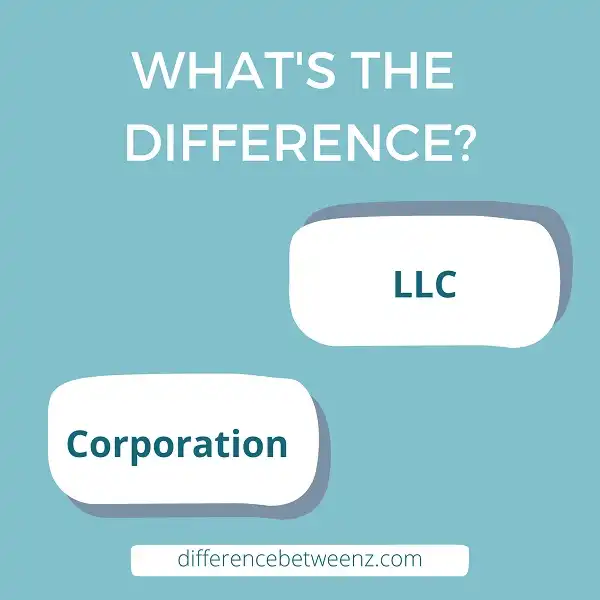There are two main types of business structures in the United States: LLC and corporation. Both have their own unique benefits and drawbacks, so it can be tough to decide which is best for your business. In this blog post, we’ll break down the key differences between LLCs and corporations so you can make an informed decision. Stay tuned!
What is LLC?
LLC stands for Limited Liability Company. LLCs are a type of business entity that offers personal liability protection and tax advantages. LLCs are formed by filing articles of organization with the secretary of state. LLCs can be managed by one or more members, and members can be individuals, corporations, or other LLCs. LLCs offer flexibility in how they can be structured and operated, making them a popular choice for small businesses. LLCs are also easy to form and maintain, and they provide good asset protection from creditors.
What is Corporation?
A corporation is a legal entity created by individuals, stockholders, or shareholders, with the purpose of operating for profit. Corporations are allowed to enter into contracts, own property, and engage in business activities, just like individuals. The main difference between a corporation and an individual is that a corporation has a legal existence independent of its owners. This means that the corporation itself can be held liable for its actions, and its owners are not personally responsible for the debts and obligations of the corporation. While this separation of liability offers many benefits, it also comes with some disadvantages. For example, corporations are subject to double taxation, meaning that they are taxed on their profits and then their shareholders are also taxed on their dividends. Corporation tax rates are also generally higher than individual tax rates. Because of these factors, incorporating a business is a complex decision that should only be made after careful consideration.
Difference between LLC and Corporation
LLCs and corporations are both business entities that offer limited liability protection to their owners. LLCs are typically less formal than corporations, with fewer governance requirements. LLCs can also be taxed as either pass-through entities or corporations, while corporations are always taxed as separate entities. LLCs are also typically simpler and cheaper to form than corporations. However, corporations offer a few advantages over LLCs. First, shareholders of a corporation have limited liability for the debts and liabilities of the corporation, while LLC members only have limited liability for debts and liabilities incurred by the LLC itself. Second, shareholders of a corporation can sell their shares without dissolving the corporation, while LLC members must agree to admit new members or dissolve the LLC. Finally, corporations generally have more prestige and credibility than LLCs, making it easier to attract investors and customers.
Conclusion
The biggest difference between LLCs and corporations is that an LLC offers its owners limited liability. This means that the personal assets of the business owners are protected in case the company gets sued or goes bankrupt. Corporation owners, on the other hand, have no such protection and can be held personally liable for any legal issues or debts their company may incur. If you’re looking to set up a business, it’s important to decide which structure will offer you the most protection. For smaller businesses with fewer assets to protect, an LLC might be a better option. Larger companies with more at stake might want to consider forming a corporation instead.


